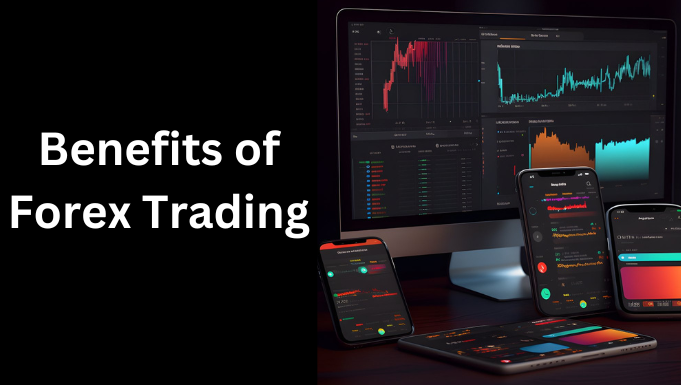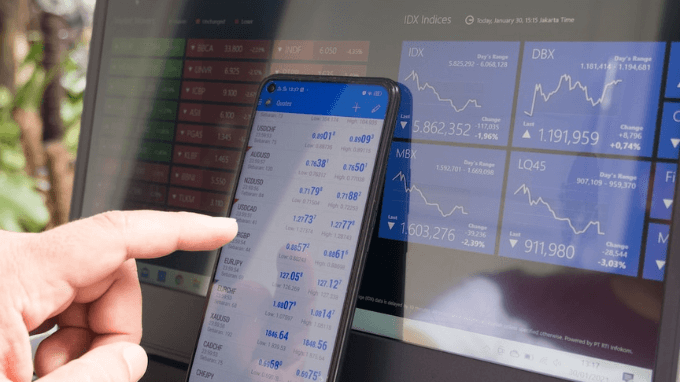In the financial world, forex trading stands out as a dynamic and intriguing avenue for those seeking to unlock new opportunities. Short for foreign exchange, forex trading revolves around the global exchange of currencies, making it the largest and most liquid financial market worldwide. While the complexities of forex may seem intimidating at first glance, delving into its benefits reveals a landscape ripe with potential for both seasoned investors and newcomers alike. From the accessibility and liquidity that define its core to the diverse trading options and risk management strategies it offers, forex trading paints a canvas of financial prospects.
1. Accessibility and global presence
Forex trading operates 24 hours a day, five days a week, spanning major financial centers across the globe. This accessibility allows traders to engage in transactions at any time, providing flexibility for individuals with diverse schedules. Whether you are an early riser in Asia or a night owl in North America, the forex market accommodates your trading preferences.
2. Liquidity and market depth
The sheer volume of daily transactions in the forex market contributes to its unparalleled liquidity. With a multi-trillion daily trading volume, the market is highly liquid, meaning you can execute trades quickly and at stable prices. This liquidity is especially beneficial for large transactions, as it minimizes the risk of significant price fluctuations during trade execution.
3. Leverage for enhanced profits
One of the distinctive features of forex trading is the availability of leverage. Leverage enables traders to control a more substantial position with a smaller amount of capital. While this magnifies potential profits, it’s essential to approach leverage with caution, as it also increases the risk of significant losses. Proper risk management is crucial for harnessing the power of leverage effectively.
4. Diverse trading options
Forex offers a wide array of currency pairs for trading, providing ample opportunities to explore and diversify your portfolio. Major, minor, and exotic currency pairs allow traders to capitalize on different economic conditions and geopolitical events worldwide. This diversity empowers traders to tailor their strategies to specific market conditions and capitalize on global trends.
5. Risk management strategies
Successful forex trading requires a comprehensive understanding of risk management. The ability to set stop-loss orders, take-profit orders, and employ other risk mitigation techniques provides traders with tools to protect their capital. Additionally, the dynamic nature of the forex market allows for quick adjustments to risk exposure, helping traders adapt to changing market conditions.
6. Educational resources e.g demo accounts
The forex market is accompanied by a wealth of educational resources and tools. Brokers often offer demo accounts, allowing novice traders to practice their strategies in a risk-free environment using virtual funds. Educational materials, webinars, and online forums contribute to a supportive ecosystem that fosters continuous learning and skill development.
7. Influence of economic indicators
Forex trading is closely tied to economic indicators and news events, creating opportunities for traders to capitalize on market volatility. Economic indicators such as GDP, employment reports, and inflation data can significantly impact currency values. By staying informed and understanding the correlations between economic events and currency movements, traders can make informed decisions and position themselves for potential profits.
8. Low transaction costs
Compared to other financial markets, forex trading generally incurs lower transaction costs. Brokers often charge a spread – the difference between the buying and selling prices – as their primary source of revenue. With no commissions on trades and minimal other fees, forex trading presents a cost-effective option for investors seeking to maximize their returns.
9. Technological advancements and automation
The forex market has embraced technological advancements, making it accessible to traders worldwide. Online trading platforms, automated trading systems, and algorithmic trading have become integral parts of the forex landscape. These tools empower traders to execute trades swiftly, analyze market data efficiently, and implement complex trading strategies with ease.
10. Portfolio diversification
Including forex trading in your investment portfolio can enhance diversification. Unlike traditional assets, currency values often move independently of other financial instruments. This independence can provide a hedge against market volatility and economic uncertainties, contributing to a more balanced and resilient portfolio.
Conclusion
Forex trading offers a variety of benefits for investors looking to navigate the dynamic world of financial markets. From its accessibility and liquidity to diverse trading options and risk management tools, forex presents a compelling case for those willing to invest the time and effort to understand its intricacies. As with any form of trading, success in the forex market requires a commitment to continuous learning, disciplined execution, and a strategic approach to risk management. By harnessing the advantages of forex trading, investors can unlock a world of financial opportunities and position themselves for long-term success.


